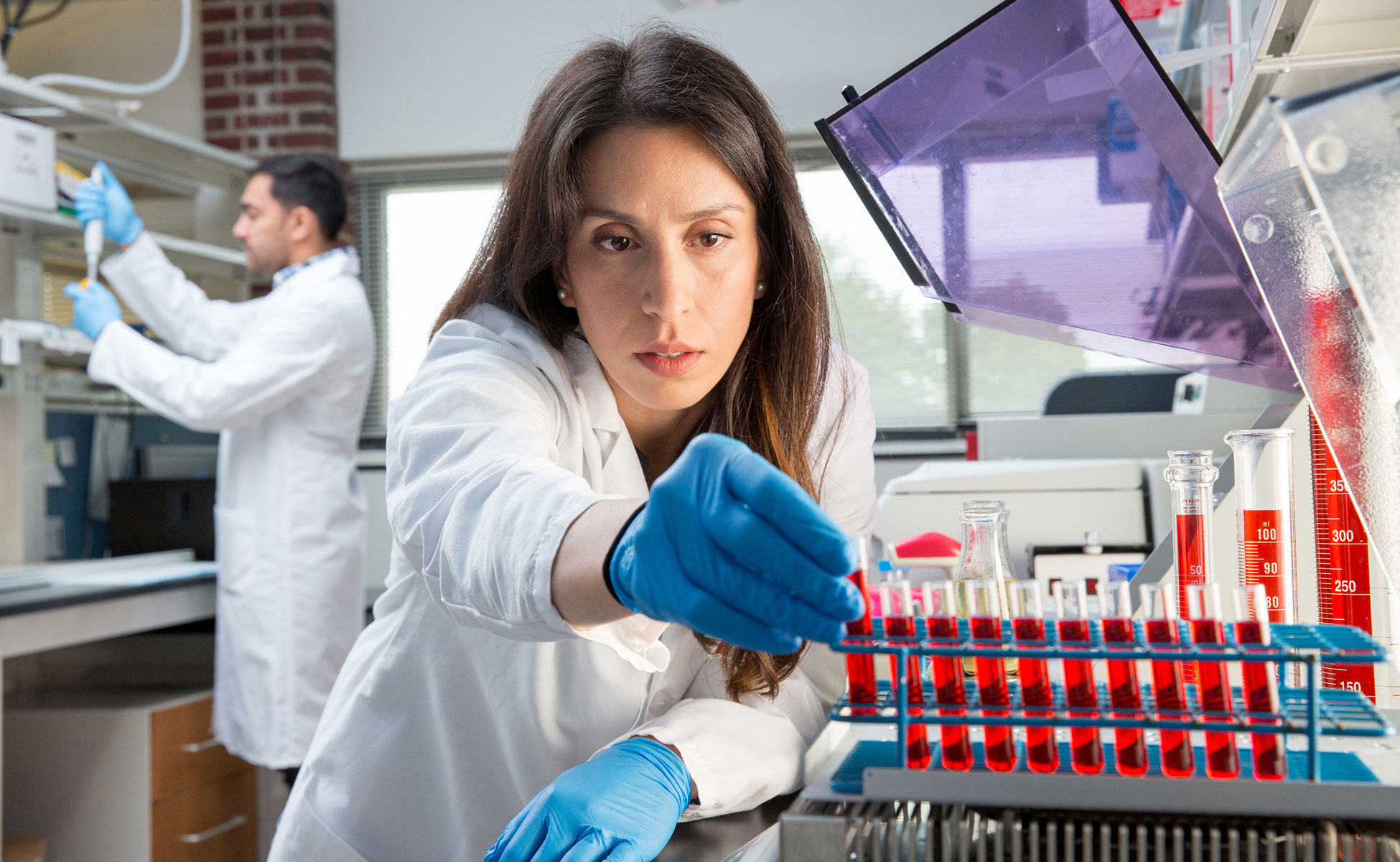You'll need to take the required courses in the Ph.D. Core Curriculum and the physiology discipline-specific courses listed below. In addition, Journal Club (PHYM 8010) and Research Seminar (PHYM 8020) should be taken each semester following entry into the physiology program. Research Techniques (PHYM 9200) is taken each semester until candidacy is achieved. Doctoral Dissertation Research (PHYM 9900) should be taken each semester after achieving candidacy. Two (2) credits of Graduate Student Teaching Assistance (PHYM 8311 or 8312) should be taken after year one of the program.
PHYM 1010 Mammalian Physiology I (4 credits)
This 2-semester course provides the student with an introduction to how organ systems, composed of cells and tissues, function in the body. The objective of this course is to provide students with an understanding of basic mammalian and human physiology. This course will cover the functions of mammalian organisms on several levels including organ systems, organs, cellular and subcellular levels. Organ systems covered in this 2-semester course include cardiovascular, respiratory, renal, endocrine, neural and gastrointestinal. Overall, students will gain a better understanding of body function. In addition, students will comprehend how certain basic and common pathological conditions alter human health and affect physiological function. This is a two-semester course, with part 1 running in the fall semester from August through December, and part 2 running from January through May.
PHYM 1020 Mammalian Physiology II (4 credits)
This 2-semester course provides the student with an introduction to how organ systems, composed of cells and tissues, function in the body. The objective of this course is to provide students with an understanding of basic mammalian and human physiology. This course will cover the functions of mammalian organisms on several levels including organ systems, organs, cellular and subcellular levels. Organ systems covered in this 2-semester course include cardiovascular, respiratory, renal, endocrine, neural and gastrointestinal. Overall, students will gain a better understanding of body function. In addition, students will comprehend how certain basic and common pathological conditions alter human health and affect physiological function. This is a two-semester course, with part 1 running in the fall semester from August through December, and part 2 running from January through May.
BCHM 1250 Biochemistry of Gene Expression (4 credits)
In vitro and in vivo aspects of DNA, RNA and protein synthesis are covered in depth by instructors actively doing research in each of these areas. Special emphasis is placed on methods and techniques used to address key questions in the macromolecular processes of DNA replication and repair, RNA transcription and processing, protein synthesis, and post-translational modifications. Students are introduced to principles and applications of molecular techniques and new discoveries in the molecular biology of eukaryotes. Students are provided with a comprehensive reading list.
Choose one of the following courses:
BCHM 1020 General Biochemistry II (4 credits)
This course is designed to present a thorough background of structural biochemistry, molecular biology and metabolism. Topics introduced include, not limited to, foundational principles of biochemistry, protein, lipid, carbohydrate, and nucleotide structure, enzyme kinetics, membranes and signaling, DNA repair and gene expression, carbohydrate, lipid, protein, and purine/pyrimidine metabolism, and the diverse biochemical functions of vitamins.
PHRM 1010 Pharmacology I (4 credits)
This basic course in pharmacology introduces the student to concepts of the interactions of chemical agents with living tissues. The teaching of pharmacological principles and mechanisms is emphasized, but toxicology and therapeutics are also part of the program.
Physiology Electives (didactic credits only)
6 elective credits in physiology. Students should consult with their graduate program director for available elective options.
Total (Core + Program Specific) = 37 credits


